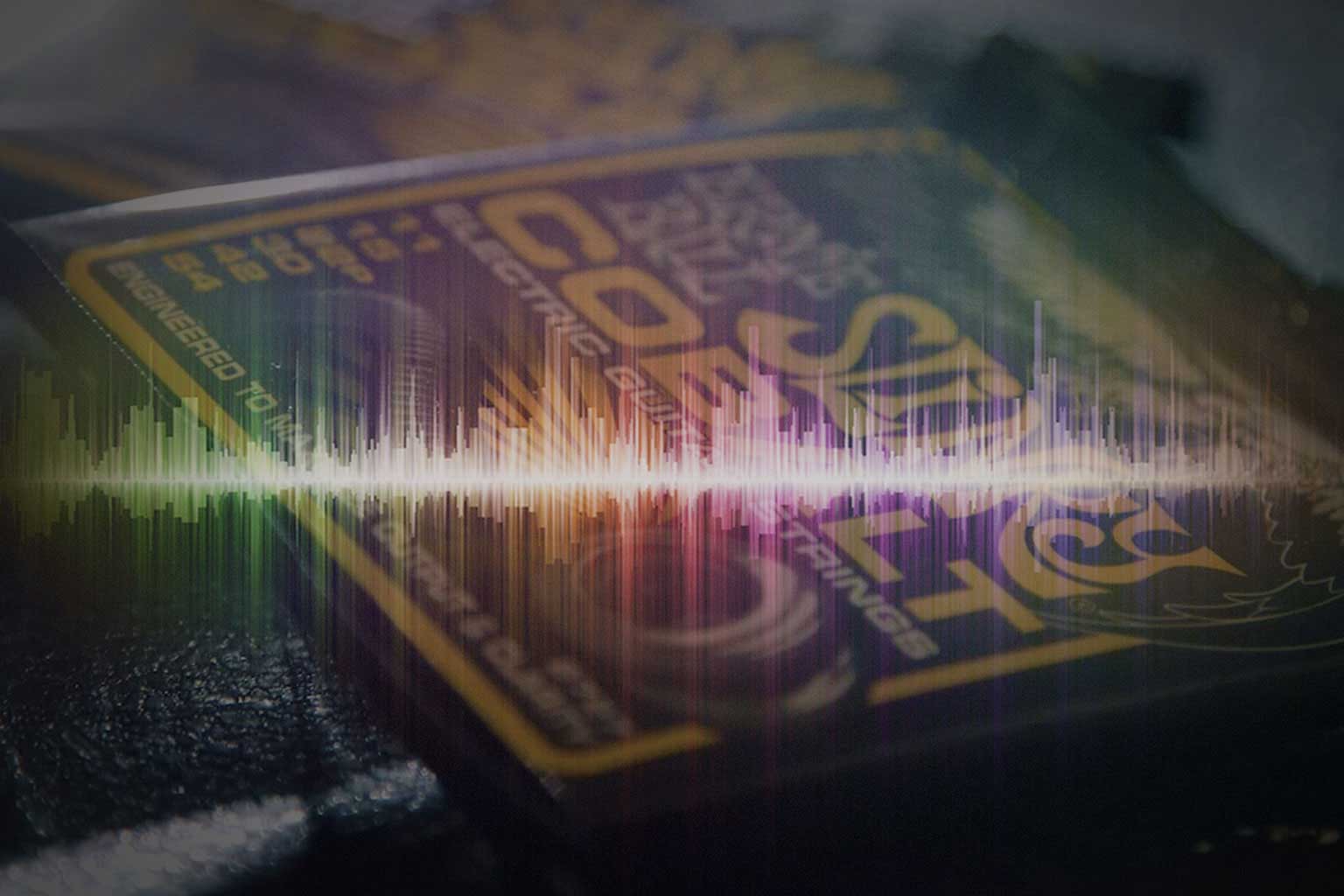Transcript
Zac Carper:
Guitar playing is really a way to write a song. The goal for me is to write songs, and guitar playing is my tool. It's like a hammer. It's also the most basic form of expression for me. I think when I play guitar, it shuts off a side of my brain that helps me be able to sing and be who I am.
My first introduction to playing music was the ukulele. Born and raised in Hawaii. I think in other schools they give you a flute recorder. In Hawaii, they gave you ukulele. Tay-hoo. Surfing and guitars and everything, music wise, for me, it's all connected. All my guitars got paint on it. They're all kind of modded, Frankenstein'd and everything like that, so it all kind of feeds into each other, especially surfing.
I was 12 or something when Enema of the State came out. Blink 182. That shit changed my life. It was also through surf videos and skate videos. I remember hearing Deftones for the first time. I was like, "whoa, what is this?" Korn, Slipknot. A lot of metal. Sublime, that was a big one. It was a little crossover of punk reggae. I really liked heavy shit. I really liked fast, loud, heavy shit.
Jelly's music in Hawaii, and I remember buying the Ernie Ball thing, and I just loved it because it was neon. I love neon. It was the color for me because my dad's surf shop, his brand is very eighties looking, you know what I mean? And Hawaii in the nineties is basically the eighties. Everything's kind of 10 years behind over there. Somehow it just reminded me of action sports, or Back to the Future or some shit. But I just do tens now, and I've been getting into lower tunings, you know what I mean? So the Mammoth one I like. Yeah.
When I moved to California, I had to take English classes because all I did was speak Pidgin and Pidgin's, like the Hawaiian slang. It'd be like, "Ho brah, how's it going? Oh, yeah, yeah. Any kine, kine. I'm going to go later. We kanak attack afterwards, yeah?"
But I had to move to the mainland, as we called it, and I had to take English classes, and all I did was hang out with surfers and skaters. So I just have this Southern California accent accent like, "Hey, yeah, dude. Yeah." And sometimes I hear it, I'm just like, "oh, dude, is that what I sound like?" But then at the same time, I'm just like, "Yo, that's me." Fuck it. I'm just going to lean harder into that. That's who I am. Yeah.
Speaker 2:
Yeah.
Zac Carper:
Just got to be you, bro. Just got to be. Dude, MXPX. Let It Happen, bro. That's what it is, dude. Just got to let it happen.
I moved to LA, and I wanted to be a producer. I wanted to see how music was being made. I was working at Kingsize Soundlabs, and then I eventually moved and became engineer assistant dude for this dude, Rob Schnapf. At the end, we'd get out at 10:00 PM, I would learn how to use the gear by writing songs, and the first songs that I wrote were basically the first record for FIDLAR.
I always say the shitty part about DIY is you got to do it yourself. So I think, in reality, when I look back on it, nobody would do it for us, so you just made it happen and do it ourselves. We would set up in parking lots, and we would set up under overpasses and skate parks, and all the gear would be plugged into an outlet that's 50 feet away next to the public bathroom that you find. So the approach of just figuring out how to do it no matter what is brought in, not only to playing music, but it also comes into the writing. I only know a couple chords, but I know how to play them well, and we'll figure out how to make music no matter what.
Does it sound cool is a big one. Does it sound good to you? You know what I mean? And then, especially with FIDLAR, is all the process, too, of the yin and yang thing. Even my guitar rig, there's a brand new 5150 with a '67 Blackface Bassman. It's garage rock and new metal, basically. So just combining two elements of that with producers. Our second record was the dude was a pop-country producer, and we're like, "All right. Let's see what happens." It's taking those opposites and combining them and just seeing what happens and not having an expectation of what it's supposed to be. That's tough. Oof. That's so tough.
Our whole thing, FIDLAR's whole thing, that we spend most of our time doing is our live performance, and that is an actual physical thing you can go to. You know what I mean? It is a place you can go in this era, right now, of mass overly saturated everything. Our show feels like a place where kids can just lose their mind and not be judged.
I write a lot of music surfing. In my head. When I'm out there, in the water, I am thinking of melody and lyrics, and sometimes I'll sing. Drive fucking people nuts out there, Dude, but they're all kooks anyways, so they can get off my wave. The most important part, I didn't realize until recently, is the drive back home. In that drive back home. I don't listen to music. I just think of lyrics, and I think of melodies, and I just sing them in my head.
So it kind of goes back to the guitar. Sitting down on the couch with a guitar and just writing stuff and just kind of whispering or singing things quietly. But then it's emotional. It sounds sad. And then I'm like, "How do I not feel like this? Oh, major key, faster, louder, distortion, boom. I feel way better."
Sometimes songs come up from playing the guitar. For an example, we have this song called Fuck Shit Up, and it's probably one of our most heaviest songs, and I wrote it actually on piano because it was the two white keys that are close together. I was like, "I want to write a song with this." How do you write a song with that? You know what I mean? So I just like a little weird little challenges like that. So I just try to think of something that can be hard, and I just try to make it as dumb as possible.
I always just end up going back to fast, loud, obnoxious, happy sounding songs with sad lyrics. I think it's like an emotional speedball in a weird way. It's the bong grip and coffee at the same time, the upper and the downer. It just does something to me. I like it.
I will say this about starting a band now, I think your biggest asset right now, in 2023, is playing live. I think it all boils down to performing your music live right now. The only way you get better at something is by doing it over and over and over and over and over and over again. So play as many shows.
And it doesn't matter if there's one person up there or there's a thousand people out there. I enjoy it when it's less people. We call it the RIFF system. The R-I-F-F, remember, it's for fun. Every time there's like ten people out there, you're like, all right, man. The RIFF system's in effect, and you play like you're in a fucking stadium. You just go even harder.
So playing shows, building it up, it takes patience, hard work, and you just keep doing it, and you get one fan, and then you get another fan. Then you get another one. Then you lose them when you put out your second record and then you get more, and then you lose more when you put out your third record and you just keep going and keep going and keep going. You know what I mean?
You are right here, right now. You're not anywhere else. I think for myself included and for a lot of artists is that they want to be big right now. And I'm sorry to say that I've had everybody in my entire career say, what I'm about to say, is that you'll never be as happy as you are right now. But the reality is, when I was sleeping on the floors and going on tours with my best friends and getting into all kinds of trouble and getting our van broken into and shit like that. Those were the funnest times of my life. So I would've enjoyed it more. I think I enjoyed it actually pretty well, and a little too much, to be honest. But yeah, that's what I probably tell myself.
I do this just because I love it. You know what I mean? I'll get a job just to do it. I quit doing drugs to make music. That sucks. It's a horrible thing to happen to a human. It's bullshit.
Speaker 2:
Did it get harder to write after?
Zac Carper:
Uh-huh. Yeah. It got so hard to write music when I stopped doing drugs. But it gets easier. Yeah.
I did learn theory. I know my theory. And that took intention to learn it. You know what I'm saying? And then it also takes intention to unlearn it.
There was a decision that I made in my life somehow is that I'm pretty good at writing little weird, pop-punky, indie-ish kind of songs about my feelings, and I'm just going to get better at doing that instead of trying to reinvent the wheel.



















